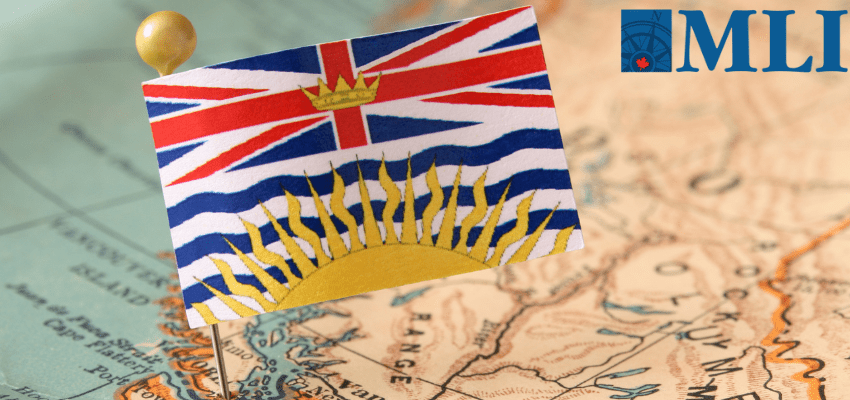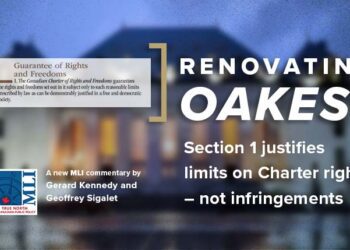By Ken Coates, October 11, 2024
The upcoming election in bitterly divided British Columbia, long an outlier in federal politics, has emerged as a critical test run of the intense, polarized and highly emotional national political contest that looms ahead.
When British Columbians go to the polls on Oct. 19, they can choose between an activist NDP government and the Lazarus-like Conservative Party of B.C. that now dominates the political agenda with a “common sense” platform.
As on the national scene, the B.C. vote is more than a classic “left versus right” contest, although the different approaches to the role of government, public spending, state intervention, and social and identity concerns are evident.
The NDP government shares a lot in common with the federal Liberals, including an increasingly unpopular leader in David Eby, a positive and creative approach to Indigenous affairs, an environmentally activist agenda that is seemingly blind to economic dislocations, and now a wavering position on the province’s long-standing climate change and carbon tax policies.
John Rustad revived the moribund Conservative Party of B.C. by bringing conservative fiscal values back into the mainstream and took strong and previously unpopular positions on Indigenous and environmental matters. Along the way, he dismantled the BC United Party, formerly the BC Liberal Party.
Recent polls suggest the election will be close, likely defined by a deep rift between the Vancouver and Victoria urban support for the NDP and the Interior and small-town flirtation with the Conservatives.
The NDP government has spent generously but not always wisely, running up sizeable deficits that undercut the province’s reputation for fiscal reliability. It stood strongly with the Canadian government on the “safe supply” approach to excessive drug use and has failed, like the federal Liberals, to manage the housing crisis in major cities.
Eby’s government took a cautious approach on natural gas development and pipeline construction, leaving the government several billion dollars short in revenues.
On Indigenous matters, the Eby government became a world leader, particularly in its efforts to implement and respect the United Nations Declaration on the Rights of Indigenous Peoples. It walked while the federal government has mostly talked.
The recognition of Indigenous title on Haida Gwaii outside the treaty process establishes a new model for engagement with First Nations. Strong and consistent concessions to Indigenous communities on resource development (which have not, incidentally, stopped activities as critics forecast) empowered First Nations and set the groundwork for improved relationships.
Echoing the national popularity of the federal Conservatives, the B.C. Conservatives’ “common sense” platform outlines support for small-town economic development, fiscal restraint, lower taxes (including carbon pricing), expanding LNG production, promoting resource development, constraining the interventions of activists, and reforming education and health care.
Rustad offers a dramatically different approach to the regulation of hard drugs, a tough approach on crime, opposition to identity politics, a promise to eliminate tent cities and a commitment to walk back support for UNDRIP.
The Green party, once the key power broker and partner with previous premier John Horgan’s NDP government, seems to be in sharp decline. Andrew Weaver, former Green leader, has been highly critical of Eby and the current NDP and professed his support for Rustad, based largely on his concern over the premier’s approach to governing.
The Conservatives’ positions, like their federal counterparts, can be summarized simply: government has gone much too far on many fronts, has amassed an unsustainable deficit, and has undermined the core work of government.
The B.C. NDP, like the Trudeau government, leaves the impression that “you ain’t seen nothing yet” in both government activism and spending.
British Columbians have long reveled in their political uniqueness, but in 2024 they are providing a preview of the next national election.
The resurgent B.C. Conservative party has many policy similarities to the Conservative Party of Canada, with a powerful commitment to economic development and a desire to put identity politics in the rearview mirror.
The B.C. NDP, like their federal counterparts, has turned soft on carbon taxes, leaving Prime Minister Justin Trudeau as one of the few political leaders who have tied their political fortunes to this increasingly unpopular policy.
Should Eby lose or win narrowly, it would reinforce the rise of the right in the country. Perhaps most importantly, the B.C. electorate would signal it has lost enthusiasm for an activist provincial leader with a willingness to spend freely on social programs, build large deficits, and pays little attention to building the economy. Sound familiar?
Ken Coates is a distinguished fellow and Director of Indigenous Affairs at the Macdonald-Laurier Institute.






